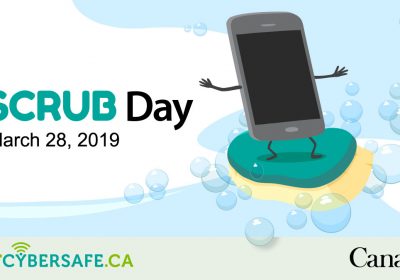
- Stats: 1710 0
- Author: Money Bloggess
- Posted: January 27, 2019
- Category: Cybersecurity
Data Privacy Day. Are you #PrivacyAware
On January 28, Canada and many countries around the world celebrate Data Privacy Day. Data Privacy Day highlights the impact technology is having on our privacy rights and underlines the importance of valuing and protecting personal information.
For the Office of the Privacy Commissioner of Canada, Data Privacy Day is an opportunity to highlight key issues, the role of our Office, and the resources we have developed for individuals, businesses and federal institutions to foster awareness of privacy rights and obligations.
For more information on Data Privacy Day, visit the official website hosted by StaySafeOnline.org: Data Privacy Day official website.
Why We Should Care About Privacy
Today we conduct much of our lives on the internet and on our connected devices, yet few people understand that enormous amounts of personal information is collected and shared. This data can be stored indefinitely, and our personal information can be used in both beneficial and unwelcome ways. Even seemingly innocuous information – such as your favourite restaurants or items you purchase online – can be used to make inferences about your socioeconomic status, preferences and more.
Watch LiveStream
Join NCSA, sponsors and special guests on January 28 for a privacy event like no other! This year, Data Privacy Day will spotlight the value of information. Whether you’re an individual looking to better manage your privacy and how your data is collected and shared, or a business collecting, using and storing that information, remember: Personal information is like money. Value it. Protect it. The technology landscape is rapidly changing and is forging a new era in privacy. Privacy leaders with diverse perspectives will explain opportunities and challenges for the privacy road ahead.
Data Privacy Day Infographic

Know Your Privacy Rights!
- Read up on the basics of Canada’s federal privacy laws.
- Learn how the federal government handles your personal information.
- Find out about a business’ obligations with respect to your personal information.
- Discover how to raise a privacy concern with an organization.
- Remember, you have the right to access and correct your personal information.






